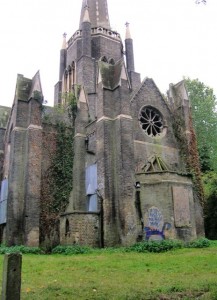O’Connor Power’s letter to President Grant, auctioned at Adams 30 April, fetched 350 euro. Outbid again!
Blog
Lot 73
On 30th April, Adams will auction a letter from John O’Connor Power to President Ulysses S Grant. The letter is dated October 1st 1876 and asks the President to accept a congratulatory address from the people of Ireland on the centennial of American Independence.
See That Irishman, pp.71-72.
The X MP and Parnell
X was a member of Parliament and a Fenian. In Barry O’Brien’s The Life of Parnell he relates, ‘And in fact, I was, about this time, deputed to ask Parnell to join us [the IRB]. I did ask him. He said “NO” without a moment’s hesitation …”Have patience with me,” he said; “give me a trial for three or four years …’ (p.110)
X later explains ‘ … In Parnell we had a man who hated England, and was ready and able to fight her at every available point. I thought that such a man ought to be given his head. He had asked for a fair trial, and I felt he was entitled to it.’ (p.125).
R. Barry O’Brien, The Life of Parnell, 1910.
In That Irishman X is identified as O’Connor Power.
That Irishman and the regulation of traffic.
The roads in the first years of the twentieth century were not constructed to accommodate the new motors, and thoroughfares were congested and dangerous.
That Irishman gave evidence at an inquest, ‘the real interest centering in the evidence given by Mr John O’Connor Power, a barrister, residing at Kingston Hill’. He argued that speed was a problem and the resources of the police badly deployed:
‘the concentration of the police force upon the trapping of motorists on open, unfrequented roads, while leaving utterly unregulated the traffic at spots where such neglect is likely to cause serious actual danger to the public.’
The Auto: the Motorist’s Pictorial Weekly, 1904
Homestead Act 1862
O’Connor Power, a leader in the land reform of Ireland movement, would have had a strong awareness of the United States Homestead Act (1862), Abraham Lincoln’s great achievement.
‘No other nation has ever done such a thing, giving a man a farm of at least a hundred and sixty acres in the western territories, with no conditions other than that he farms it for at least five years.’ Gore Vidal, Lincoln.
An Irish-Liberal Alliance
That Irishman spearheaded an alliance between Irish Nationalists and British Liberals against a common enemy, the Tory party. The Tories, representing the propertied classes, were hostile to Home Rule and feared the democratization of the Empire.
Tory: a cant term, derived from an Irish word signifying savage. (Dr Johnson)
That Irishman and the Ague
O’Connor Power suffered from attacks of an acute, violent fever. Was the disabling ague a recurrence of malaria or of typhus? The symptoms might be heavy, dry eyes, severe headache and deep weariness, followed, for several days, by alternate bouts of shivering and sweating until the fever ran its course.
Ague: An intermitting fever with cold fits succeeded by hot. The cold is, in popular language, more particularly called the ague, and the hot the fever. (Dr Johnson)
Third Edition
That Irishman is now in a third edition.
Asquith
I have just finished reading R.B. McCallum’s Asquith (1936). H.H. Asquith was British Prime Minister 1908-1916. A Yorkshire man, he was elected in 1886 as a Liberal Home Ruler for East Fife. Allied with Gladstone, he continued to support Home Rule throughout his parliamentary career.
In 1920, as leader of the Opposition: ‘In regard to Ireland, then harassed by the guerilla war with Sinn Fein, he boldly declared for Dominion Home Rule. It was the most radical step of his whole public life. For once he was in advance of public opinion. He was ridiculed for a fool and denounced as a traitor, yet within two years his policy was carried into effect by Lloyd George and his Unionist colleagues.’ (p.136)
McCallum was later Master of Pembroke College, Oxford.
‘For this Club, at least, it is a sign of grace when a public man cites Johnson. There is no statesman of our time who does this more often, or more effectively, than Asquith.’ The Forty Years of the Johnson Club 1884-1924, George Whale, 1925, p.18.
John Buchan admired Asquith’s ‘contempt for advertisement’.
‘He was a naturally sweet-natured man, but under that gentleness there lay judgement and firmness, as was shown in the great crisis of history.’ Arthur Conan Doyle, Memories and Adventures, Chap. XXIII, Some Notable People.
On his retirement, he read a paper to the Johnson Club, ‘Dr Johnson and Fanny Burney’. It was privately published by Sir Charles Russell.
28th February, 1919
That Irishman was buried 28th February, 1919, a week after his death at home in Putney. O’Connor Power was laid to rest in his wife’s family plot in Abney Park garden cemetery, Stoke Newington, North London. His grave is not far from the derelict non-denominational chapel. Abney Park is maintained as a local nature reserve.

Watch Abney’s MPs. A Virtual Tour by Alan Gartrell. YouTube